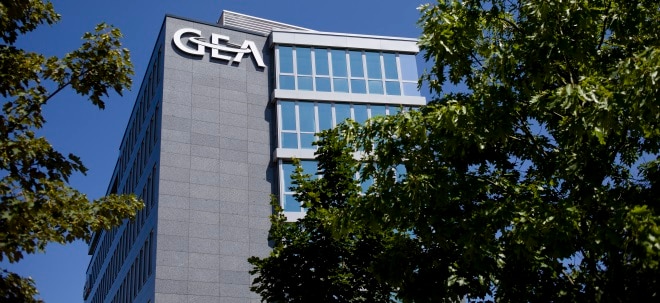From Burnout to Breakthrough: EasyPA's Physician-Built AI Takes on Antiquated Prior Authorization
The growing demands on America's healthcare system are colliding with an overburdened workforce, and prior authorization has become one of the biggest drains on limited capacity. EasyPA, a physician-built AI platform, streamlines approvals and appeals, cutting through red tape to reduce delays, eliminate waste, and give doctors back valuable time for patient care.
TAMPA, Fla., Oct. 6, 2025 /PRNewswire/ -- Amid physician shortages, rising regulatory pressure, and an aging U.S. population demanding more care, the administrative tangle of prior authorization (PA) is emerging as a silent but deadly driver of burnout. The U.S healthcare system is bracing for a severe deficit of 187,130 physicians by 2037, including more than 87,000 in primary care. (1) Nearly every specialty is at risk, with 31 out of 35 expected to face shortages. (2) Hospitals are already straining under financial and staffing pressures, much of it worsened by antiquated PA processes. (3)
"These shortages aren't just about an insufficient supply; they're fueled by burnout," said Dr. Paola Ballester, MD, pediatrician and co-founder of EasyPA. "While patients wait for care, physicians and staff spend days faxing forms back and forth with insurers. It's a broken system that keeps doctors away from their patients."
Recognizing this urgent gap, EasyPA—a physician-led AI solution—is stepping in with a fix—one that speeds patient access, reduces waste, and restores balance to a workforce on the brink.
Prior Authorization: The Hidden Fuel Behind Burnout
Physicians today spend an average of 12 to 13 hours a week managing prior authorization requests—nearly two full working days—while juggling 39 to 43 requests per physician, per week.(4) Nearly 90 to 95 percent of doctors say this burden directly increases their burnout. The consequences reach far beyond clinicians: 93 percent of physicians report that prior authorization delays patient care, while 78 percent say their patients sometimes abandon treatment entirely due to the obstacles.(5) Some of these delays result in serious, even life-threatening outcomes.
Why Now Is the Moment for Change
The regulatory landscape is shifting. The Centers for Medicare and Medicaid Services (CMS) will soon require electronic prior authorization. While intended to streamline processes, this change risks adding even more strain to practices already stretched thin. Providers that fail to prepare will not only struggle with compliance but also face worsening inefficiencies and patient delays.
A Physician-Built, Patient-Focused Solution
EasyPA was created by doctors who know firsthand the damage prior authorization inflicts on patients and providers. The platform automates form completion, payer communication, validation, and appeals.
"We shrank a process that once took days or weeks into one that takes minutes or hours," Dr. Ballester explained. "Our AI models generate comprehensive appeal letters in under two minutes—work that traditionally drains hours from staff or physicians."
Unlike insurer-built "black box" systems that auto-deny care, EasyPA was engineered with transparency and physician oversight at its core. It does not replace doctors or issue denials; it supports them by organizing data, synthesizing medical records, and handling repetitive tasks. HIPAA-secure and FHIR-enabled, the platform integrates directly with electronic medical records, providing a plug-and-play solution that eases compliance with CMS's mandate.
From Hidden Crisis to Urgent Innovation
For too long, prior authorization has been dismissed as routine paperwork. In reality, it is one of the most damaging hidden drivers of burnout and attrition in medicine. With up to 187,000 physicians projected to be missing from the U.S. workforce in just over a decade, healthcare cannot afford to waste time on administrative inefficiencies. EasyPA demonstrates that AI, when designed responsibly, can be part of the solution—not another barrier.
"Prior authorization has become a kind of 'paperwork tax' on physicians' time—hours that could be spent diagnosing, treating, and comforting patients," Dr. Ballester said. "Streamlining the PA process is not just a matter of efficiency—it's a matter of safety, access and dignity."
About EasyPA
EasyPA was founded by three visionaries, a pediatric hospitalist, a utilization management director, and an AI engineer, who were tired of watching patients suffer from the bureaucratic red tape of an outdated, manual PA process. So, they built the fix. EasyPA is the first AI-powered platform designed by physicians to eliminate prior authorization bottlenecks, automating approvals, accelerating appeals, and cutting time-to-treatment by more than ten times. HIPAA-secure and CMS compliant out of the box, EasyPA is built on modern infrastructure, ready for FHIR, and seamlessly integrates into provider workflows — no IT department required. EasyPA puts control back in the hands of providers and brings compassion and clarity to the most broken part of healthcare.
Fix the system. Keep the care. That's EasyPA.
Learn more at EasyPA.
References
Media Inquiries:
Karla Jo Helms
JOTO PR™
727-777-4629
Jotopr.com
![]() View original content to download multimedia:https://www.prnewswire.com/news-releases/from-burnout-to-breakthrough-easypas-physician-built-ai-takes-on-antiquated-prior-authorization-302575774.html
View original content to download multimedia:https://www.prnewswire.com/news-releases/from-burnout-to-breakthrough-easypas-physician-built-ai-takes-on-antiquated-prior-authorization-302575774.html
SOURCE EasyPA


